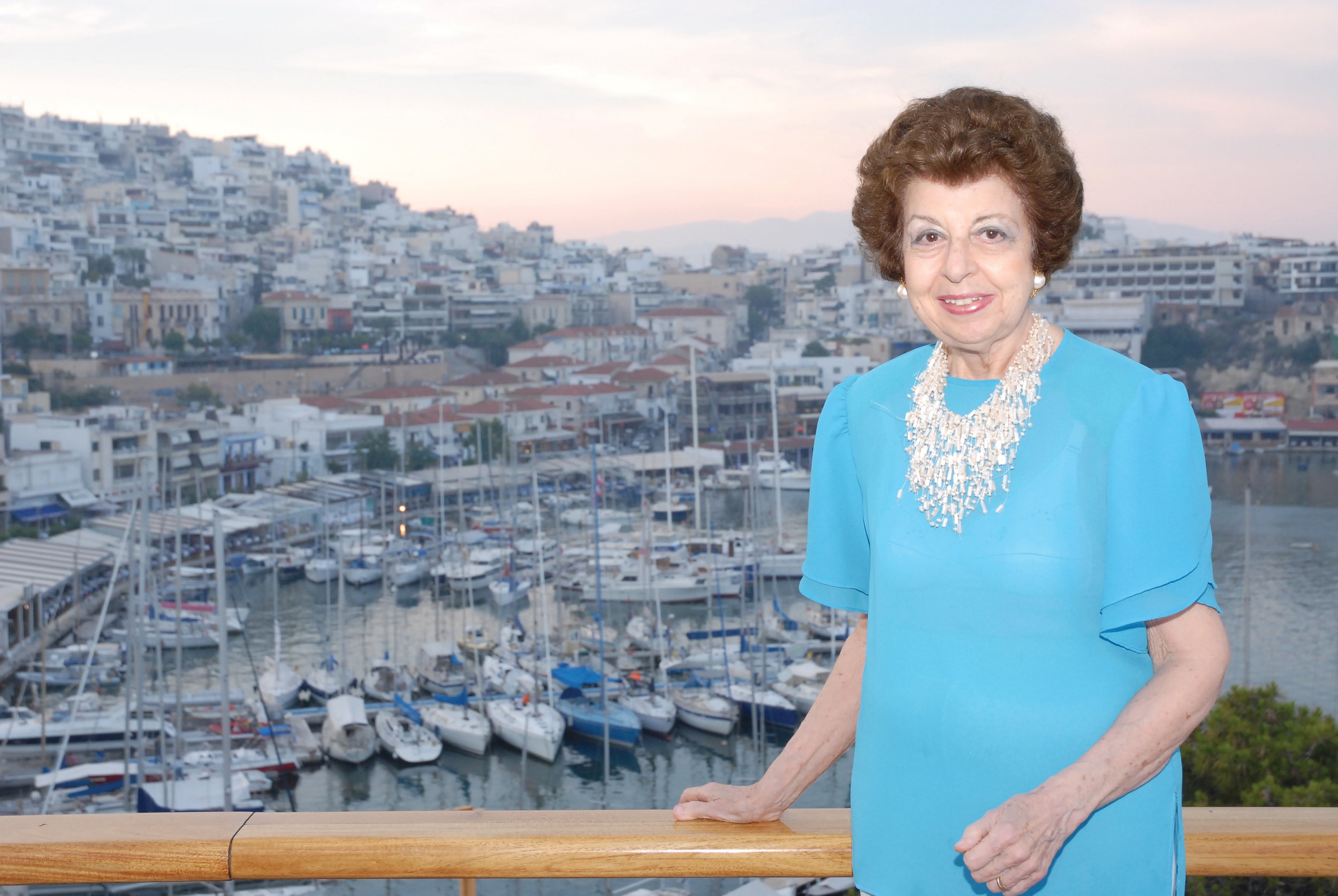Lily Venizelos
This post is part of our Living Legends series that spotlights key people in sea turtle conservation.
Biography
Lily Venizelos spent a great part of her youth on the Greek island of Hydra, where as a girl she got into trouble scaring away game birds that her father and his friends had intended to shoot. In 1974, a storm brought her yacht to shelter in Laganas Bay, Zakynthos, Greece, and she was completely enchanted by its pristine beauty. Five years later, she witnessed the invasion of bulldozers and jet skis that came with uncontrolled tourist development.
Having realized that the bay was rimmed with important nesting beaches, she vowed to fight for its protection. She was unfazed by being chased into the sea by an angry landowner’s dog. Even after being throttled by a bishop, she continued to fight the good fight for the turtles of Laganas Bay. She went on to found the Mediterranean Association to Save the Sea Turtles (MEDASSET) in 1988, and MEDASSET turned itself into a fearless and effective lobbying and advocacy organization that today operates across the Mediterranean region. Her work has been honored by the United Nations and IUCN (International Union for Conservation of Nature), and Lily has been recognized by the International Sea Turtle Society with a Lifetime Achievement Award.
In 2020 Lily established the "MEDASSET Lily Venizelos Foundation", by donating her entire estate to MEDASSET, aiming to keep the organization's work alive, active and ongoing, hopefully for several generations to come.
What Was Your First Sea Turtle Moment?
When it happened, I didn’t know it was my first contact with sea turtles. I was walking on the beach at Laganas, among the gorgeously colored shells and curiously carved pebbles that were decorating the sand, and I noticed lines of strange little markings that I couldn’t identify. Months later, while reading a magazine article in a dentist’s waiting room, I realized I had been looking at the tracks of hatchling sea turtles. It was both a light bulb moment and a call to action.
What Is Your Proudest Accomplishment in Sea Turtle Conservation?
I’m glad to have been part of the long campaign to achieve the formation of Greece’s first marine park at Zakynthos. That great, protracted, and ongoing struggle was and is a battle for protection that I have fought in the corridors of power nationally and internationally. I’m proud that what started as a localized effort focused on one Greek island now extends to six more nesting beaches around the Mediterranean rim, thanks in part to our annual presentations to the Bern Convention.
What Is Different Now from When You Started?
I can see greater public awareness than there ever used to be, and many more organizations are working in the field of environmental protection internationally. Additionally, the existence of open case files at the Bern Convention has kept the Greek government in particular on its toes and wary of international condemnation. The case files continue to lead the government to put protective measures in place and to make efforts to implement those measures.
What Are You Most Hopeful (and Worried) about?
The effort that we and others are putting into environmental education has produced a generation of young people who really care about the planet. There’s a good chance that they will be more willing than my generation to make the sacrifices needed to tackle climate change and the loss of biodiversity. Dealing with those two huge challenges is vital, but the political cost of addressing them too often means governments everywhere overlook them and prioritize dealing with the more short-term concerns of their electorates.
What Is Your Advice to People New to This Field?
Make sure the significance of the latest research findings reaches decisionmakers with messages that are both memorable and easy to digest. Remember that the polluters and despoilers have a name and a face. We can go after them and hold them responsible, and we should.

